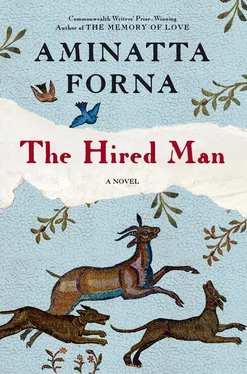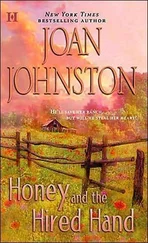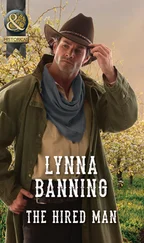In the third week of October the men arrive. The Mayor calls those of us who served in the territorials to a meeting in the school gymnasium, thanks us for our courage and dedication. We’ve been drilled in weapon use, though we all learned how to handle a rifle at our mother’s breast. Mostly we cleared up after a shelling, hoisting corpses to the mortuary. We’ve attended nightly meetings. None of us has seen any fighting, which was left to the National Guard. Now the commander of the National Guard stands beside the Mayor and afterwards shakes several of us by the hand and then shakes his fist in the air. There are a few cheers.
Standing either side of the Mayor are two of the men from the new unit. The Mayor introduces them by name. (Perhaps one of these names is familiar to you. For a while some seven or eight years later he was mentioned in the newspapers several times a week. One picture they used a lot. In it he wore a tall fur hat and a brocade jacket; probably it was taken at a wedding. By coincidence, I saw a picture of him in a newspaper just the other day. He was being transferred to an open prison for good behaviour, which is how seriously the government took his penance. He was sentenced to fifteen years, not enough, but still someone took the trouble to put him there. No, not enough, but enough to unnerve some people with secrets of their own. I looked at the picture for a long time: he hadn’t changed much except that now he was bald. He is very unremarkable-looking, you would pass him in the street. You’ll find the picture in the box with the other cuttings.) He has short dark hair, already receding into a sharp widow’s peak, a nose with a cleft tip, grey eyes and heavy, pale eyebrows, which are at odds with the colour of his hair; he is dressed in fatigues, a peaked cap bearing the insignia of the new country and army boots, and stands with his legs apart and his hands behind his back, in the way that militiamen do. Everything in his manner gives the impression that here is a most resolute man, who knows exactly what he wants, down to his breakfast order. When he smiles he shows surprisingly good teeth. Next to him the Mayor in his nylon blazer looks grey and rumpled. The Mayor tells us these men have been sent direct from Zagreb to offer us assistance. The one with the pale eyebrows steps forward and shakes his fist in the air. He cheers. His cheer contains the air of a challenge, so this time people cheer. He cheers again and we cheer back, once, twice, three times. By the third cheer the men are really roused.
The newcomers say they are here to protect us.
After the meeting a few souls wander over to the Zodijak for a drink. Fabjan is wiping down the pinball machine. No sign of Javor, who tends to stay away from the Zodijak a good deal of the time these days. I guess he and Fabjan must have decided it’s awkward given the bar remains the favourite watering hole of the National Guard. Madness to turn down the money they bring. ‘Business is business,’ says Fabjan. So Javor concentrates on collecting supplies and bringing the books up to date. I’ve seen him sitting at the kitchen table working his way through the bound ledgers that contain columns of the Zodijak’s profit.
We drink for an hour. There’s talk, about the meeting and other things. Someone wonders out loud who the fuck these pansies are who turn up when the show’s over, but they shut up quick when four of the same walk in: the two we have just seen at the meeting and two more. Fabjan goes over to shake hands and offer them drinks on the house, business first always. After he serves them he sits down at their invitation and from the bar I watch them laughing and joking, downing beers. Fabjan looks very comfortable: he’s winning them over the way he wins over everyone.
By nine o’clock I’m drunk. The bar begins to empty as men leave for their wives and smashed homes. A couple more customers wander in, not a busy night. One of them is a distant cousin of Javor, looking for a drink because after all drinking is the only thing left to do. He nods to a few folk, including me, and leans on his elbows hunched over the bar. Fabjan, sitting with the new arrivals, sees Javor’s cousin but he doesn’t come and serve him. As for the cousin, he’s in no hurry; he leans on the bar and kicks the floor with the toe of his shoe. After a while he reckons he’s waited long enough and he wants that drink, he twists round to see what’s going on. ‘Eh, Fabjan!’ Fabjan ignores him. The cousin calls again. ‘Eh, Fabjan?’ Again no reply, even though it’s impossible for Fabjan not to have heard. So the cousin stands up straight and draws in his chin, the way people do when they think they are being insulted. He looks around, but nobody meets his eye. We are witnessing a show of strength and most people are not keen to get on the wrong side of Fabjan. In a situation like this timing is crucial. All it would have taken was for another customer to have ordered a drink, as little as that to bring Fabjan to the bar, to rupture the line, but the moment has already passed. And the reason why has something to do with the presence of the newcomers.
The man with the widow’s peak and pale eyebrows lifts his glass to his lips and slowly drinks. He’s watching, although his gaze rests on nothing in particular. He puts the glass down on the table, reaches for his cigarette in the ashtray and takes a puff, putting it back with the same deliberateness. He puts his hands on the table and spreads his fingers, the way people do in films.
Me, I stand there and watch. I am drunk, which has slowed my responses. I’ve missed the moment too, and now it feels as if there is nothing to do but watch the thing unfold. I also want to know as much as anyone whether Javor’s cousin will call a third time and demand to be served and if he does what Fabjan will do. But the cousin is no fool. He swears under his breath, pushes himself off the bar and leaves. Through the glass I see him gesture, more or less to himself, he sort of flicks his hand, as though there is something stuck to his fingers.
The man with the pale eyebrows and the widow’s peak smokes his cigarette and orders another Johnny Walker. Fabjan takes his place behind the bar. The burning filter of the cigarette of the man next to me in the ashtray makes a bad smell until he finally notices and crushes it out.
By the next morning the whole incident is gone from my mind. Too much else to think about. I need to hunt, to bring some meat to the table. We have all been hungry for so long. When I see Javor later that evening the business with his cousin comes back into my mind, but there is Anka and in the moment I realise I am not sure what it is I am going to tell them. I say nothing. We talk about the food. I say nothing. This is the greatest mistake I will ever make.
First I dug a pit. I dug it at the top of the long field. A metre square, a metre and a half deep, because of foxes which as you know are relentless. Second I zeroed the sights on the.243. I have my own set-up at the far end of the long field, with a bench and target, and this was one time when everything had to be right. I spent half an hour up there, checking the alignment of the cross hair on the target, fractionally adjusting the sights. I set up the rifle in the place I’d chosen, then I measured a hundred paces and made a mark in the grass.
I lifted Kos from the blankets on the floor by the side of my chair where she’d lain for the last two days. There must have been pain, but she barely made a sound. Impossible to carry her all the way, so I laid her on an old trolley I had in the yard, the kind you get from railways, which is where I got this one in the first place. I’d used it to shift bags of cement when I was turning the old pig house into a home for myself eighteen years ago; in November of the same year I found Kos. In human years she would be a centenarian, so perhaps what we were about to do wouldn’t be so far in coming anyway. I locked Zeka in the house, which is something I’d never done and would unsettle him, but was unavoidable. I gave him a piece of the fried liver I had in my pocket and set off with Kos, pulling her on the trolley first up the road and then carrying her from there to the top of the long field. I put her into the position and fed her some of the fried liver from my pocket. Kos lifted her head to take it from my hand, and nibbled it perhaps to please me for her appetite was pretty much gone.
Читать дальше












